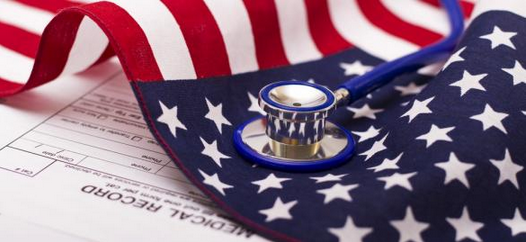
(Editor’s Note: The following is the second in a series of four exclusive HealthWorks Collective interviews on Health Policy by our Washington DC reporter, Steven Goldstein)

(Editor’s Note: The following is the second in a series of four exclusive HealthWorks Collective interviews on Health Policy by our Washington DC reporter, Steven Goldstein)
Ron Pollack is the Founding Executive Director of Families USA, the national organization for health care consumers. Families USA’s mission is to achieve high-quality, affordable health coverage for everyone in the U.S. Pollack is also the Founding Board Chairman of Enroll America, an organization supporting optimal enrollment of uninsured people through effective implementation of the ACA.
HWC: As ACA rolls out, are you anticipating a large number of consumers will switch from their present plans?
RP: Most people who have health coverage today receive it through an employer and those people are likely to continue getting coverage in the workplace. For those people who have purchased individual coverage, I think there’s a reasonable chance they will purchase coverage through the new marketplace because many of them will be eligible for tax credit premium subsidies that will significantly reduce their premium costs.
HWC: What is the biggest misimpression/misunderstanding about ACA?
RP: The biggest misunderstanding is some people believe this is a government takeover of America’s health care system and it clearly is not. The ACA provides opportunities for people to purchase private health insurance through a new marketplace that uses all the competitive advantages that exist in a system where insurance companies vie for optimal enrollment and thus have to offer the best price and the greatest care. Calling it a government-run system is very misleading.
HWC: How can we correct the gap in coverage for poor workers in states not expanding Medicaid?
RP: The way to provide help for the people who are below the poverty line is for the states that haven’t yet opted into the Medicaid expansion to make a decision to go forward with it. I believe this is going to happen in the not-too-distant future in all or virtually all of the states. When Medicaid was started in 1965 there were a number of states that did not immediately decide to implement the program but ultimately all came in. I think that will happen here, especially because the federal government’s generosity to the states is an offer that is hard to turn down.
HWC: What is challenging for consumers about the ACA thus far?
RP: There’s no question there have been glitches preventing people from getting into the website and getting enrolled. This is purely a temporary problem. This first enrollment period has 182 days and we’ve only experienced the first week.
HWC: What advice would you give a consumer who is self-employed and in good health? Health challenged?
RP: I would give the same advice to both. Insurance is there to protect you when you get sick or have an accident and it’s hard to predict when that might occur. Chronically ill people know they will need care. But even for those who are healthy, insurance is there to deal with the unpredictable. For the chronically sick, the ACA does some remarkable things: prohibits insurance companies from denying coverage due to a pre-existing condition; prohibits insurers from charging a discriminatory higher premium, and stops insurers from terminating health coverage when someone gets sick.
HWC: Why was the Obama plan ultimately approved while the Clinton plan failed? What did you learn from that effort in 1993-94?
RP: The fact that there have been numerous health reform efforts that did not succeed has enlightened stakeholders in the health care system. This time we had greater cooperation from major stakeholders … who knew we couldn’t afford to fail again on health reform. Insurers played a significant role in opposition in 1993-94. A number of small business groups also opposed health reform. This time, in the beginning of the debate, those interest groups either were in support or neutral as the process moved forward.
(health insurance exchanges / shutterstock)